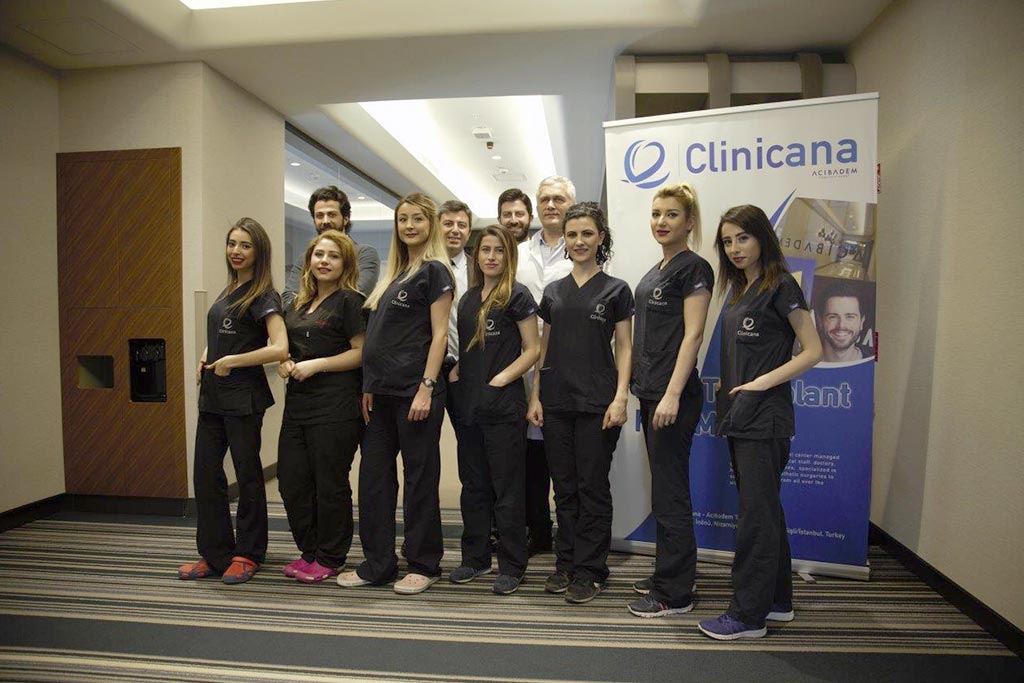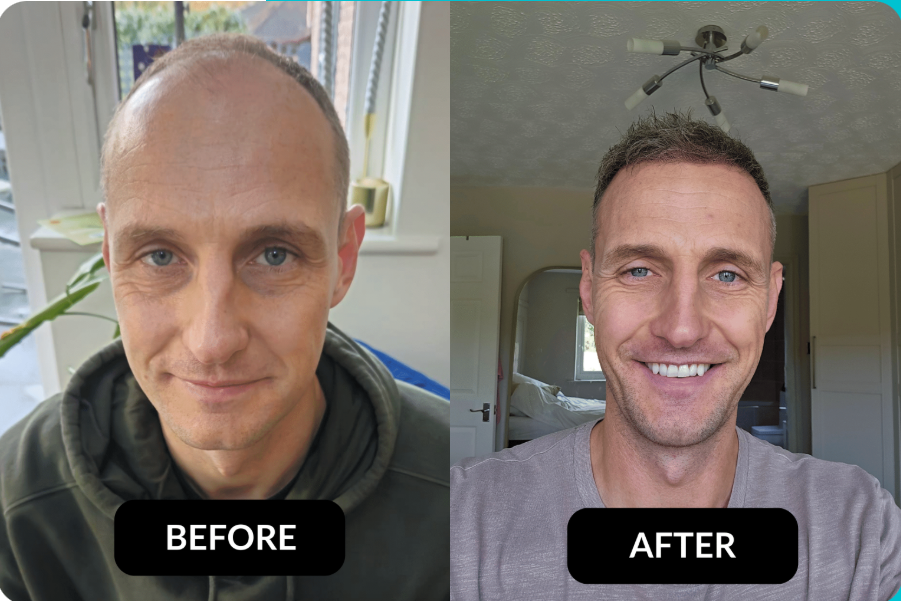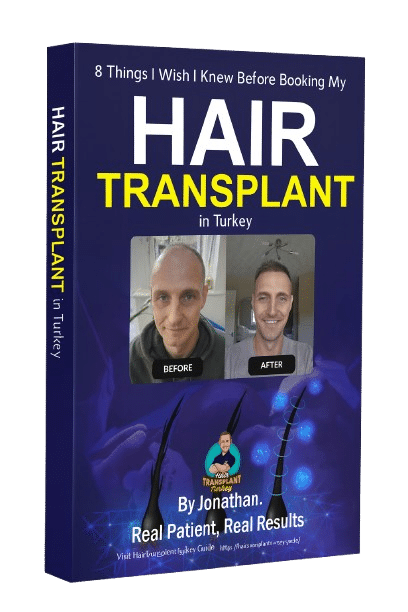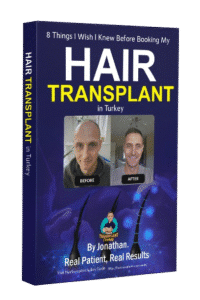Introduction: why this matters
If you’re reading this, you’re probably thinking about a hair transplant — maybe in Turkey — and wondering whether you’re going to get value for money or end up paying more than you should. I know that feeling well. In January 2025 I flew to Istanbul and had my surgery at Clinicana Hair Transplant & Esthetics Clinic. I was delighted with the results, but I delayed the decision for years because I didn’t feel confident. I didn’t know enough about how clinics price their services, how upsells work, or how to protect myself. Now I’m sharing everything I wish I knew, so you’re in a stronger position from the start.
In this article I’ll show you what to look out for before, during, and after your procedure — so you don’t get hit with hidden costs, misleading graft counts, or aggressive upsells. I’ll speak from personal experience at Clinicana, and I’ll also draw on authoritative sources so you can see what good standards and bad practices look like.
By the end you’ll know how to ask the right questions, spot red flags, and feel confident. If you’re ready to go deeper, remember you can also download my free guide: “8 Things I Wish I Knew Before Booking My Hair Transplant in Turkey” at https://hairtransplantturkey.guide/.
Let’s begin by understanding what you’re really being charged for.
Understanding what you’re really paying for
When I first looked at the offers from Turkish clinics, I saw lots of packages with big numbers, flashy extras — but I wasn’t sure what each thing meant or why the price varied. Here’s what I learned.
Key cost-components that make sense
- Technique: For example, FUE (Follicular Unit Excision) vs FUT (Follicular Unit Transplantation) — standards vary. International Society of Hair Restoration Surgery (ISHRS) notes that FUE and FUT are the main methods and that many marketing names (Sapphire FUE, nano-FUE, hybrid etc) are not officially recognised. ISHRS+1
- Number of grafts: More grafts = more donor hair used = higher cost.
- Surgeon involvement: Is the surgeon doing the key steps or are technicians doing much of it?
- Clinic/hospital setting, quality of after-care, accommodation/transfer (especially for overseas patients).
- Aftercare and medications: This is sometimes included, sometimes extra.
Table: what transparent pricing should contain vs red-flags
| What should be included | What to watch out for |
|---|---|
| A written quote that specifies “X grafts, technique Y, hotel & transfers included” | Price is “flat” with no graft count or vague “all inclusive” claim |
| Clear breakdown of what’s included (consultation, surgery, post-op kit) | Small print says “aftercare sold separately” or “transfers not included” |
| Same price for local & international clients (or at least clearly defined) | Foreign-patient surcharge or “exotic package” upsell upon arrival |
| No pressure sales to upgrade before you know your graft count | “You must upgrade today or miss the deal” tactics |
For example, the Mayo Clinic explains that hair transplant is “significant cost and recovery time” and that “in most cases it requires multiple procedures over time” so you need clarity upfront. Mayo Clinic News Network+1
Now that you know what you should pay for, let’s look at how clinics try to upsell or overcharge — and how to spot it.
The most common upselling tactics (and how to spot them early)
From my experience at Clinicana and from checking dozens of clinics, I identified several recurring tactics. Knowing them helped me avoid paying more than necessary.
Upsell / overcharge tactics
- “Premium” packages with minimal extra value
- Example: At one point I was offered an upgrade “premium FUE platinum package” which included “luxury hotel” and “VIP transfers” but no extra grafts or better surgeon. I asked: “Does this improve my clinical result or just the surroundings?” The answer: mainly the surroundings.
- Tip: Focus on clinical outcomes (graft count, surgeon involvement) rather than hotel suites.
- Misleading graft counts or “unlimited grafts” promises
- Marketing may say “unlimited grafts” or “biggest session in Turkey” — but the ISHRS warns many such terms are unregulated or not officially recognised. ISHRS+1
- Tip: Ask: “How many grafts are you realistically offering? And how do you count them?”
- Pushing a more expensive technique you may not need
- For example: “DHI” (Direct Hair Implantation) vs standard FUE. Sometimes the extra cost doesn’t guarantee better result depending on your case.
- Tip: Get an honest assessment: if standard FUE (done well) is appropriate, don’t pay for premium technique unless it’s justified.
- Hidden after‐care or medication costs
- Some clinics quote a low headline price, but then on arrival you’re told “your aftercare kit is extra”, or “you need this booster treatment for best result”.
- Tip: At the time of booking ask: What post‐op medications, shampoos, follow‐ups are included?
- Hard-sale urgency / limited time offer tactics
- “Book today for the discounted rate”, “Only one slot left”, etc. This creates pressure before you’ve done proper research.
- Tip: Take time. Compare at least 2–3 clinics, ask for written quotes and don’t feel rushed.
Understanding these means you’re less likely to be caught off guard. Next, I’ll share the signals of a clinic that is being transparent and fair — so you know what to look for.
Signs of a transparent (and fair) clinic
During my own visit with Clinicana, several things stood out. These are the markers I believe indicate a clinic is genuinely looking after you rather than upselling you.
What reputable clinics do
- Send you a written quote ahead of travel, detailing graft count, technique, hotel, transfers, aftercare. At my clinic, the quote came via WhatsApp and email.
- Use same pricing (or clearly defined pricing tiers) for international clients — no hidden “foreign patient surcharge”. My total cost matched what was quoted.
- Have a consultation with the actual surgeon (or senior doctor) rather than just a sales rep. When I met the surgeon, he reviewed my donor area and confirmed graft count.
- No hard pressure to upgrade. I was offered packages, yes — but not in a way that felt manipulative.
- Good communication and clarity about what happens on the day of the surgery and afterwards.
- If you want to verify, you can check affiliation or membership with organisations like ISHRS (for example the article on graft counting from ISHRS). ishrs-htforum.org+1
Why this matters
If the clinic cannot or will not provide transparent information, you’re entering a situation where the price could creep up, hidden costs could appear, and you may feel awkward challenging them once you’re onsite in a foreign country. I believe transparent pricing + clear process = greater satisfaction and better results.
Now that you’re equipped with what transparency looks like, I’ll walk you through what to ask before booking — so you go in fully prepared.

What to ask before booking (to protect your wallet and results)
Here’s a checklist I used (and you can too). These are the questions that separate good clinics from ones where you’ll be paying more than you expected.
- How many grafts do I need, and how will you count them?
(Make sure you get a number in writing: e.g., “3,000 grafts, FUE technique”.) - Who will perform the extraction and implantation?
(Will the surgeon do all the key steps or will assistants do large sections?) - What exactly is included in the advertised price?
(Does this include the hotel, airport transfers, post-op medications, follow-ups?) - Are there any additional fees I should be aware of?
(E.g., for extra grafts, for after-care kit, for extra travel nights.) - What payment methods are accepted and are there extra currency/transfer fees?
- Can I speak with a previous international patient or see their results?
(If the clinic is willing, that’s a good sign.) - What’s the refund/cancellation policy if something changes?
- What happens on the day of surgery and how long will I stay?
(One of the UK NHS pages explains that transplants usually take a day under local anaesthetic. nhs.uk)
When I contacted Clinicana, I asked all of these. I got clear answers in writing, and I never felt like I was being pushed into expensive extras. This gave me confidence. Now let’s talk about what happens during and after the surgery — because upselling can still happen then.
During and after surgery: when to be cautious
Even if you’ve booked and all looks good, this is a phase where extra costs or upsell pressure can sneak in. In my experience, being prepared helped me stay in control.
What to expect
- On the day I was given a schedule, met the team, had the extraction and implantation stages clearly explained, and got a post-op kit.
- The clinic explained optional add-ons (for example PRP or extra sessions) but made it clear they were optional.
- Aftercare: I had follow-up checks and clear guidance on how to care for my new grafts.
When upselling can creep in
- Some clinics might say “we strongly recommend you add this booster treatment for best results” and tack on a high price. Research on PRP (platelet-rich plasma) is mixed, so whether it’s essential depends on your case. NCBI+1
- Medications, special shampoos, extra nights in hotel, transport upgrades — all can add up.
- If you’re tired, jet-lagged, or want to just go ahead, you may feel less inclined to check the fine print. Stay alert.
In my case, I was asked whether I’d like to include PRP. They explained cost, benefit, and let me choose. I opted out — and still got excellent results. Later I’ll talk about how I avoided being overcharged — but first let’s cover what to do if you think you’ve been overcharged.
What to do if you think you’ve been overcharged
It’s unpleasant to think it could happen, but if it does, you’ll want to know your options and how to protect yourself.
Steps you can take
- Review your written contract/quote and all communications (emails, WhatsApp) — compare what was promised vs what you are being charged.
- Contact the clinic in writing and ask for clarification — sometimes extra charges may be legitimate, but you should understand them.
- If the clinic doesn’t resolve it:
- Check whether they are members of organisations like ISHRS and whether you can raise a complaint.
- For patients from the UK or EU, you might check whether there is a regulatory body or consumer-protection route (e.g., misleading advertising can be reported to UK’s Advertising Standards Authority).
- For overseas clinics (such as in Turkey) check what recourse you have locally: hospital accreditation, Turkish health ministry oversight, etc.
- Keep documentation of all payments (transfers, receipts, invoices) — this helps if you need to escalate.
When I prepared, I found that being attentive and having documentation meant I didn’t face unexpected charges — and if I had, I felt I had the tools to challenge it.
Next, I’ll share my personal story in brief: how I avoided being overcharged and got great results — so you can learn from what I did right.
My experience: how I avoided being overcharged (and got excellent results)
Let me share how my own journey played out so you can see how it looked in reality.
- I chose Clinicana in Istanbul after comparing 3 clinics and reading reviews.
- I asked for a detailed quote: it specified ~3,000 grafts, FUE technique, hotel + transfers + after-care included, for €2,850.
- I asked exactly who would perform the extraction and implantation; the surgeon (named) would do key parts.
- On arrival, the process was smooth: airport transfer, hotel check-in, on-site consultation. No surprise upsells.
- When the optional PRP was offered, I asked about evidence. I decided to skip it. The surgeon respected that.
- After the surgery I followed the post-op instructions, and over the next 6–12 months I saw good growth. I never paid extra beyond what was quoted.
- Today I look at the mirror and think: “This was worth it.” The transparency built my trust.

I felt confident because I had done the work ahead of time. Now you can too.
Final thoughts & next steps
Getting a hair transplant is a big decision — financially, physically, and emotionally. My biggest takeaway: the result is not just about the surgery. It’s about the process, the transparency of pricing, and how comfortable you feel. If a clinic starts to feel pushy, vague, or unclear, walk away or get a second quote.
Here’s what you should do now:
- Download my free guide “8 Things I Wish I Knew Before Booking My Hair Transplant in Turkey” at https://hairtransplantturkey.guide/.
- Compare at least two clinics using the checklist above.
- Ask all the key questions before committing.
- Make sure the quote is in writing and that you understand exactly what you’re paying for.
- And on the day of surgery, stay alert — optional treatments are fine, but they should be optional, not mandatory.
You deserve a transparent process, a fair price, and a result you’re happy with. I hope my experience helps you feel more confident and empowered — and when you’re ready, you’ll go ahead knowing you’ve done your research.



 Continue with Google
Continue with Google